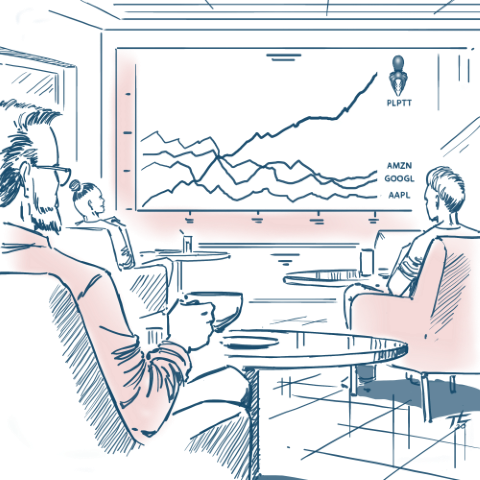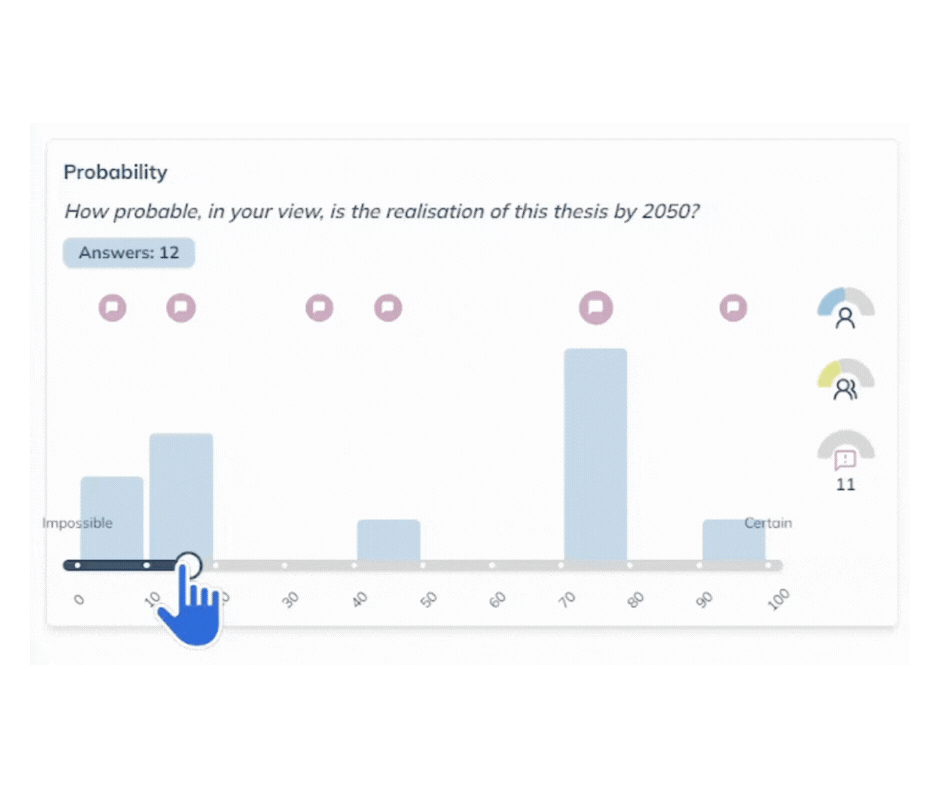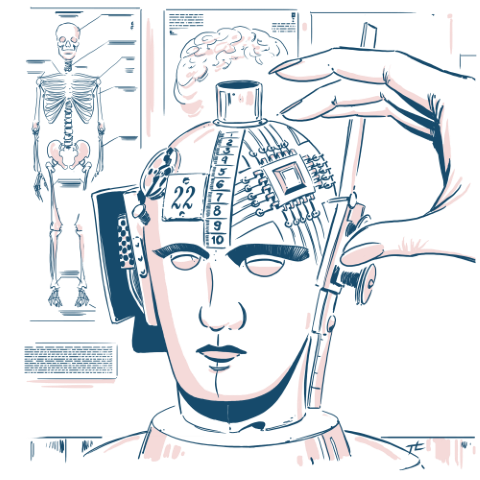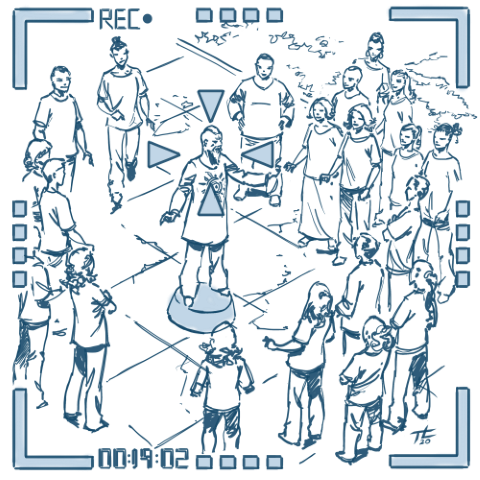Strategic risk in the age of AI
Leveraging next-gen Real-Time Delphi for deep uncertainty and emerging threats


Risks in a complex world
Effective risk management in today’s volatile world demands more than just tracking known variables or extrapolating past data. Organizations face a growing array of complex, interconnected risks often characterized by deep uncertainty, limited quantitative data, and potential future disruptions. This challenge is intensified by the rise of Artificial Intelligence (AI), which offers powerful new analytical capabilities but also introduces novel risks and profoundly increases the need for structured human judgment to interpret its outputs and guide its application responsibly.
While quantitative models have their place, the Delphi method, particularly in its newest, next-generation form, emerges as an increasingly indispensable tool. It provides a unique, structured framework for harnessing diverse expert judgment precisely where quantitative data falls short, enabling deeper insight into the risks that matter most.

Why modern Delphi excels where other methods struggle
Risk registers, quantitative models or AI-driven analyses often fail to capture the full picture, especially regarding emerging, complex, or ethically charged issues. Delphi’s strengths lie precisely in addressing these gaps, enhanced by the current context:
![]() Illuminating the unknown and unquantifiable: Delphi is exceptionally suited for exploring risks with little historical precedent – emerging technologies, geopolitical shifts, complex social trends, potential ‘black swan‘ events. Anonymity encourages experts to voice concerns about subtle, complex, or even ‘undiscussable’ risks that might otherwise remain hidden.
Illuminating the unknown and unquantifiable: Delphi is exceptionally suited for exploring risks with little historical precedent – emerging technologies, geopolitical shifts, complex social trends, potential ‘black swan‘ events. Anonymity encourages experts to voice concerns about subtle, complex, or even ‘undiscussable’ risks that might otherwise remain hidden.
![]() Navigating deep uncertainty and AI outputs: When probabilities are unknown (and unknowable) or AI models provide dubious and opaque outputs, Delphi shifts the focus from prediction to exploring plausibility, potential impacts, key uncertainties, and the underlying assumptions within both human expertise and AI analyses. It structures judgment under ambiguity.
Navigating deep uncertainty and AI outputs: When probabilities are unknown (and unknowable) or AI models provide dubious and opaque outputs, Delphi shifts the focus from prediction to exploring plausibility, potential impacts, key uncertainties, and the underlying assumptions within both human expertise and AI analyses. It structures judgment under ambiguity.
![]() Assessing novel AI-related risks: Delphi is uniquely suited for exploring the complex, often unprecedented risks associated with AI deployment itself – such as algorithmic bias, ethical dilemmas in automated decisions, societal impacts, or unforeseen security vulnerabilities – where historical data is absent and diverse expert and stakeholder judgment is paramount.
Assessing novel AI-related risks: Delphi is uniquely suited for exploring the complex, often unprecedented risks associated with AI deployment itself – such as algorithmic bias, ethical dilemmas in automated decisions, societal impacts, or unforeseen security vulnerabilities – where historical data is absent and diverse expert and stakeholder judgment is paramount.
![]() Synthesizing diverse, qualitative expertise: Complex risks rarely fit neat disciplinary boxes. Delphi allows the integration of insights from experts across technical, operational, financial, social, ethical, and strategic domains, creating a holistic understanding that siloed analysis misses.
Synthesizing diverse, qualitative expertise: Complex risks rarely fit neat disciplinary boxes. Delphi allows the integration of insights from experts across technical, operational, financial, social, ethical, and strategic domains, creating a holistic understanding that siloed analysis misses.
![]() Uncovering crucial assumptions (human and algorithmic): Delphi’s emphasis on reasoning forces participants to articulate why they assess a risk in a certain way. In the age of AI, this extends to scrutinizing the assumptions embedded within AI-driven risk assessments, ensuring human oversight of automated analysis.
Uncovering crucial assumptions (human and algorithmic): Delphi’s emphasis on reasoning forces participants to articulate why they assess a risk in a certain way. In the age of AI, this extends to scrutinizing the assumptions embedded within AI-driven risk assessments, ensuring human oversight of automated analysis.
![]() Building informed consensus on priorities: Delphi provides a structured process to help diverse groups converge on which threats or opportunities (including those identified or amplified by AI) warrant the most urgent attention, based on reasoned deliberation.
Building informed consensus on priorities: Delphi provides a structured process to help diverse groups converge on which threats or opportunities (including those identified or amplified by AI) warrant the most urgent attention, based on reasoned deliberation.

Key Delphi applications in forward-looking risk management
Modern Delphi moves far beyond simple risk rating exercises:
![]() Horizon scanning and weak signal analysis: Identifying and assessing early indicators of potentially disruptive future risks or opportunities before they become mainstream issues.
Horizon scanning and weak signal analysis: Identifying and assessing early indicators of potentially disruptive future risks or opportunities before they become mainstream issues.
![]() Complex risk assessment: Gathering nuanced expert judgments on complex risks, explicitly exploring the reasoning and uncertainties, including potential cascading effects or interdependencies amplified by interconnected systems or AI agents..
Complex risk assessment: Gathering nuanced expert judgments on complex risks, explicitly exploring the reasoning and uncertainties, including potential cascading effects or interdependencies amplified by interconnected systems or AI agents..
![]() Scenario planning input and validation: Using Delphi to identify critical uncertainties shaping alternative futures, assess the plausibility of different scenarios, and explore potential risks and opportunities within those scenarios.
Scenario planning input and validation: Using Delphi to identify critical uncertainties shaping alternative futures, assess the plausibility of different scenarios, and explore potential risks and opportunities within those scenarios.
![]() Evaluating strategic responses and mitigation: Collectively assessing the potential effectiveness, feasibility, costs, and unintended consequences of different strategies for navigating or mitigating complex risks under deep uncertainty.
Evaluating strategic responses and mitigation: Collectively assessing the potential effectiveness, feasibility, costs, and unintended consequences of different strategies for navigating or mitigating complex risks under deep uncertainty.
![]() Technology and policy risk assessment: Evaluating the multifaceted risks associated with emerging technologies (like AI) or potential policy changes where impacts are uncertain and expert judgment across disciplines is required.
Technology and policy risk assessment: Evaluating the multifaceted risks associated with emerging technologies (like AI) or potential policy changes where impacts are uncertain and expert judgment across disciplines is required.

The RTD advantage: Agility and depth for dynamic risks
Real-Time Delphi (RTD) enhances these capabilities in today’s environment:
![]() Efficiency for complexity: RTD makes the resource-intensive process of gathering deep, reasoned expert input feasible within practical project timelines, allowing for more thorough exploration.
Efficiency for complexity: RTD makes the resource-intensive process of gathering deep, reasoned expert input feasible within practical project timelines, allowing for more thorough exploration.
![]() Dynamic adaptation: Enables rapid updates to risk assessments as new information, events, or AI-driven insights emerge.
Dynamic adaptation: Enables rapid updates to risk assessments as new information, events, or AI-driven insights emerge.
![]() Enhanced engagement: Keeps diverse experts actively involved in exploring complex, evolving risk landscapes.
Enhanced engagement: Keeps diverse experts actively involved in exploring complex, evolving risk landscapes.

Next-generation Delphi platforms: The key to unlocking deep risk insights
Crucially, realizing Delphi’s potential for complex risk management depends on the facilitating platform. Basic tools often fall short. Next-generation RTD platforms are essential enablers:
![]() Facilitating exploration of risk drivers: When risks are identified or assessed using complex models (human or AI), understanding the underlying assumptions is vital. Tools like 4CF Halnyx 2.0 make it effortless to analyze the qualitative justifications, allowing users to understand the core reasoning behind different risk assessments and scrutinize AI outputs effectively.
Facilitating exploration of risk drivers: When risks are identified or assessed using complex models (human or AI), understanding the underlying assumptions is vital. Tools like 4CF Halnyx 2.0 make it effortless to analyze the qualitative justifications, allowing users to understand the core reasoning behind different risk assessments and scrutinize AI outputs effectively.
![]() Visualizing uncertainty and disagreement: Visualizations map the full spectrum of expert judgment, clearly highlighting areas of high uncertainty, significant disagreement, or outlier perspectives (potential weak signals) that simple averages obscure.
Visualizing uncertainty and disagreement: Visualizations map the full spectrum of expert judgment, clearly highlighting areas of high uncertainty, significant disagreement, or outlier perspectives (potential weak signals) that simple averages obscure.
![]() Supporting nuanced dialogue on complex risks: Features enabling interaction and structured discussion around specific risks or mitigation options allow for deeper probing of assumptions and collaborative refinement of understanding.
Supporting nuanced dialogue on complex risks: Features enabling interaction and structured discussion around specific risks or mitigation options allow for deeper probing of assumptions and collaborative refinement of understanding.
![]() Intelligent guidance: Focusing participant and analyst attention where it matters most (e.g. high disagreement) ensures efficient use of expert time when grappling with potentially vast amounts of AI-generated risk information.
Intelligent guidance: Focusing participant and analyst attention where it matters most (e.g. high disagreement) ensures efficient use of expert time when grappling with potentially vast amounts of AI-generated risk information.
These platforms transform Delphi into a powerful collaborative sense-making environment, essential for grappling with the complex, often unquantifiable risks that define today’s strategic landscape.

Indispensable human insight for risk in the age of AI
Effective risk management today requires looking beyond easily quantifiable metrics and historical data to grapple with deep uncertainty, emerging threats, and complex interdependencies – challenges increasingly intertwined with the rapid advancement of AI. The Delphi method, particularly in its modern, next-generation Real-Time Delphi format, has become an indispensable tool in this endeavor.
It provides a unique, structured framework for harnessing the nuanced judgment and diverse reasoning of human experts precisely where traditional methods or AI analysis alone fall short. By leveraging advanced platforms like 4CF Halnyx 2.0, designed to facilitate deep understanding and rich interaction, organizations can move beyond superficial risk assessments to cultivate the profound collective insight needed to responsibly navigate uncertainty, guide the use of AI, and build true resilience in our complex world.

Experience the next generation of Delphi
4CF Halnyx 2.0 provides the intuitive, powerful, and insight-focused platform needed to conduct effective Real-Time Delphi studies that deliver meaningful results.
Interested in Delphi and RTD? Explore our expert series:
4CF Delphi Expert Series offers comprehensive insights, drawing on extensive experience, covering everything from the fundamentals to advanced applications and the crucial role of next-generation platforms. Whether you're new to Delphi or an experienced practitioner, explore these articles to deepen your knowledge and enhance your results.






Explored these? Discover even more in our full Delphi series
Interested in Delphi and RTD? Explore our expert series:
4CF Delphi Expert Series offers comprehensive insights, drawing on extensive experience, covering everything from the fundamentals to advanced applications and the crucial role of next-generation platforms. Whether you're new to Delphi or an experienced practitioner, explore these articles to deepen your knowledge and enhance your results.
Explored these? Discover even more in our full Delphi series
Stay updated! Subscribe to our newsletter:
By subscribing to our newsletter, you consent to the processing of the provided data. The data controller is 4CF Sp. z o.o., its registered office is located in Warsaw, 10/14 Trzech Krzyży Square, postal code: 00-499.
We process your data solely for the purpose of sending information about 4CF Sp. z o.o. and its activities via e-mail. Your data will be processed until your consent is revoked through a link that will be included in each newsletter. The withdrawal of consent shall not affect the lawfulness of processing based on consent before its withdrawal. Providing your data is voluntary, but necessary if you wish to receive information about 4CF Sp. z o.o. and its activities. We may transfer the data to our suppliers of services related to the processing of personal data, e.g. IT service providers. Such entities process data on the basis of a contract with our company and only in accordance with our instructions. You have the right to request access to your personal data, its rectification, deletion or limitation of processing, as well as the right to lodge a complaint with the supervisory authority. More information about your rights and about the processing of your personal data can be found in our privacy policy.






